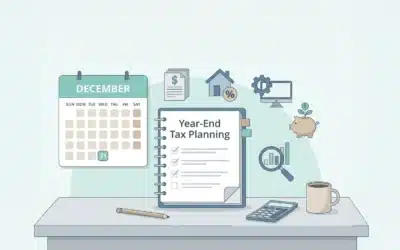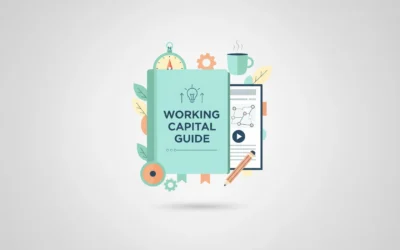In todayʼs complex financial world, high-income professionals such as physicians, lawyers, consultants, and executives face unique challenges in managing and minimizing their tax liabilities. Without proactive planning, professionals risk overpaying taxes and reducing funds available for investments, retirement, or business growth. This article reviews advanced tax planning strategies to help high-income earners reduce taxable income and optimize financial planning.
Leverage Retirement Plan Stacking (401(k), Cash Balance Plans)
Retirement plan stacking involves contributing to multiple retirement plans simultaneously. For example, professionals can maximize contributions to a 401(k) while also funding a cash balance plan that allows larger contributions based on age and income (works best for older professionals with a smaller workforce). This dual approach reduces current taxable income and builds a substantial retirement fund. Coordinating with financial advisors is essential to tailor these contributions effectively, ensuring that today’s savings also grow tax-deferred to yield long-term benefits.
Key Takeaways:
- Contribute to both a 401(k) and a cash balance plan to reduce taxable income.
- Cash balance plans allow for larger contributions, particularly for older professionals.
- Requires careful planning with a financial advisor to align with income and workforce structure.
Consider Entity Structure for 1099 or Business Income
The choice of entity structure—whether a sole proprietorship, partnership, S-corporation, or LLC—has significant tax implications. S-corporations, for example, help avoid double taxation by allowing income to pass through to personal tax returns. They also offer the advantage of splitting income between salary and dividends, which minimizes self-employment tax. Consulting with a tax advisor specialized in entity structure is key to selecting the structure that best reduces tax liabilities while balancing administrative and legal costs.
Key Takeaways:
- Entity choice can affect your overall tax burden and self-employment taxes.
- S-Corps allow income splitting and avoid double taxation.
- A tax advisor can help determine the optimal structure for your situation.
Use Accountable Plans for Business Expense Reimbursement
Accountable plans let professionals fully deduct business-related expenses such as travel, supplies, and professional fees without these reimbursements being treated as taxable income. For instance, a professional can be reimbursed for travel and other automobile expenses under an accountable plan, thereby reducing taxable income for the business. Meticulous record keeping and compliance with IRS guidelines are critical, as proper documentation not only supports deductions during audits but also enhances overall tax efficiency.
Key Takeaways:
- Allows tax-free reimbursement of legitimate business expenses.
- Expenses must be well-documented to comply with IRS rules.
- Helps reduce business taxable income without adding personal tax burden.
How QSBS Can Eliminate Taxes on Startup Equity
The Qualified Small Business Stock (QSBS) exclusion provides an opportunity for entrepreneurs and investors in early-stage companies to exclude capital gains on C-corporation stock held for more than five years*. This incentive can potentially eliminate taxes on significant equity gains, thereby doubling the after-tax return on investments.
For more insights, see our article: The Hidden Tax Gold Mine: Why Strategic Startups Are Choosing C-Corps over LLCs.
*With the passing of the One Big Beautiful Bill, QSBS has become significantly more valuable for both founders and investors. The updated rules introduce a tiered system that allows for partial tax exclusion after just three years (100% exclusion after 5 years), offering far more flexibility for earlier exits. This makes QSBS a far more powerful tool for high-growth startups and their backers, especially for those seeking liquidity before the traditional five-year holding period. However, strict adherence to holding period rules and company eligibility criteria is essential, and expert advice is needed to navigate these requirements effectively.
Key Takeaways:
- QSBS can exclude capital gains on C-corp stock held for 5+ years.
- New laws allow partial exclusions after just 3 years.
- Must meet strict eligibility and holding criteria—consult an expert.
Maximizing Deductions With Donor-Advised Funds
Donor-advised funds (or DAFs) allow high-income earners to make charitable contributions and secure an immediate tax deduction. By donating appreciated assets such as stocks, individuals avoid capital gains taxes and receive a deduction for the full market value. Regular reviews with a financial planner help ensure that contributions and grants align with broader financial goals, making DAFs a strategic tool for reducing taxable income while supporting charitable causes.
Key Takeaways:
- Donate appreciated assets to avoid capital gains and get a full deduction.
- DAFs let you retain control over the timing and direction of grants.
- Align giving strategy with overall financial goals.
Tax Deferral Through Installment Sales and Real Estate 1031 Exchanges
Tax deferral strategies such as installment sales and Section 1031 exchanges allow high-income earners to postpone recognition of capital gains. With installment sales, the seller receives periodic payments, spreading the gain over several years, while a 1031 exchange permits real estate investors to defer capital gains taxes by reinvesting proceeds into a similar property. Both strategies require careful planning and compliance with IRS rules, but when executed correctly, they can significantly reduce current tax burdens and free up capital for reinvestment.
Key Takeaways:
- Installment sales spread out gains over time, reducing one-time tax impact.
- 1031 exchanges allow tax-deferred real estate reinvestment.
- IRS rules must be followed closely—consult professionals.
Final Thoughts
Advanced tax planning is essential for high-income professionals managing complex, multi-stream incomes while complying with intricate tax regulations. By leveraging strategies such as retirement plan stacking, S-corp elections, donor-advised funds, QSBS, installment sales, and 1031 exchanges, professionals can significantly reduce taxable income and secure long-term wealth. Working with seasoned tax advisors ensures that every opportunity to defer or minimize taxes is effectively utilized, ultimately transforming tax planning into a powerful tool for sustainable financial growth.
Next Steps:
- Review your current tax strategy with a qualified advisor.
- Prioritize compliance while exploring proactive planning opportunities.
- Align your tax plan with your long-term business, retirement, and philanthropic goals.


